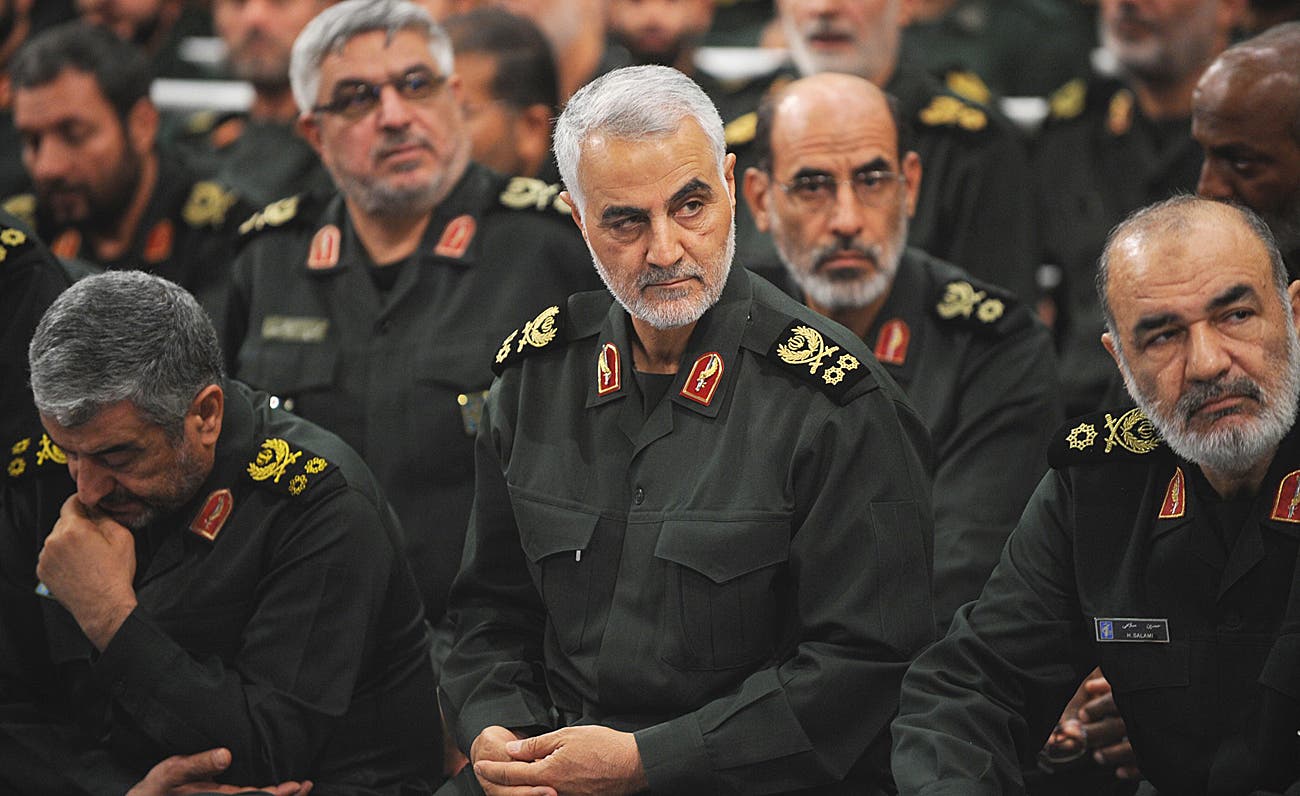Al-Arabia – Recently Iran has had a hard time of it. In addition to the United States restoring sanctions as a consequence to pulling out of the Joint Comprehensive Plan of Action (JCPOA), the domestic protests in Iran have spread to every province and the Iranian rial is nearly in freefall, hitting a record low of 120,000 to the dollar last week.
The situation is so extreme that the Islamic Revolutionary Guard Corps (IRGC) Commander, Mohammad Ali Jafari, sent an open letter to the Iranian President, Hassan Rouhani, warning him that immediate and extreme measures need to take place to stop the fall of the rial. I believe that this is a turning point in the internal political landscape of Iran.
The IRGC is much more than merely a fancy name for the Iranian Army elite troops. It is the “Praetorian Guard” for the regime in Tehran. It is the body of loyal troops all regimes need in times of internal crisis.
Further, the IRGC’s independent nature and external activities makes it liable in its own right to a separate designation as a terrorist organization by the United States. The legislation introduced in the US House and in the US Senate coupled with actions by the Trump Administration are about to converge to finalize that designation by the United States government perhaps this year.
Additionally, the IRGC owns businesses, has international financial dealings, conducts its own foreign policy to a surprising extent in several countries and enjoys a wide range of independent actions beyond approval from even Tehran. It is a financial entity in its own right – but one dependent on the health of the rial.
The collapse of the rial is bankrupting the IRGC’s business interests and, consequently, profoundly interfering in its ability to carry on its terrorist activities globally and to protect the regime domestically. All ‘Praetorian Guard’ organizations charged with protecting regimes like that in Iran, require a steady flow of pay to the troops upon which the regime leans to maintain itself, and, like all such organizations, the IRGC becomes unreliable if it is unpaid – and dangerously so.
Also compounding the problems for the IRGC, I believe that the letter from Major General Jafari to President Rouhani was a warning that the protests have a shot at growing into a full-fledged insurrection. To prevent this, the stabilization of the rial has become an imperative as a matter of internal security as well as one of prime importance to the economy. It may be that the letter was a warning that the IRGC may be quietly confessing that a broad, national insurrection may be beyond the ability of the IRGC to forcibly control.
Spiraling out of control?
Regimes like in Iran do not go quietly and with its military and likely nuclear capabilities, a collapsing and panicked Iran could be trouble for the world.
It is clear that without international action to assist the Iranian rial, nothing good is on the horizon for the Iranian economy or its security. Without a controlled and somewhat stable rial, Iran’s security (internally and externally) becomes problematic and the job of the IRGC is compounded to a point that it becomes incapable of controlling the issue.
To address this need, I doubt that the United States will be in a hurry to stabilize the Iranian economy and, consequently, to preserve the Iranian regime. The Europeans may be another story. Time will tell but a steady supply of oil may dictate certain actions in Brussels, Berlin, Paris and London. Washington will have something to say about this. It is unclear which side will prevail.
Also, the Arab countries will be watching very closely. Trouble for Iran is generally good news on the Arabian Peninsula and beyond but large scale insurrection in Iran could spill over into neighboring countries and prove to be problematic in more fragile states like Iraq.
Clearly, the situation in Iran bears close scrutiny as it develops. The future of the rial could be very closely tied to the future and peaceful quiescence of the entire region.
 Shabtabnews In this dark night, I have lost my way – Arise from a corner, oh you the star of guidance.
Shabtabnews In this dark night, I have lost my way – Arise from a corner, oh you the star of guidance.



